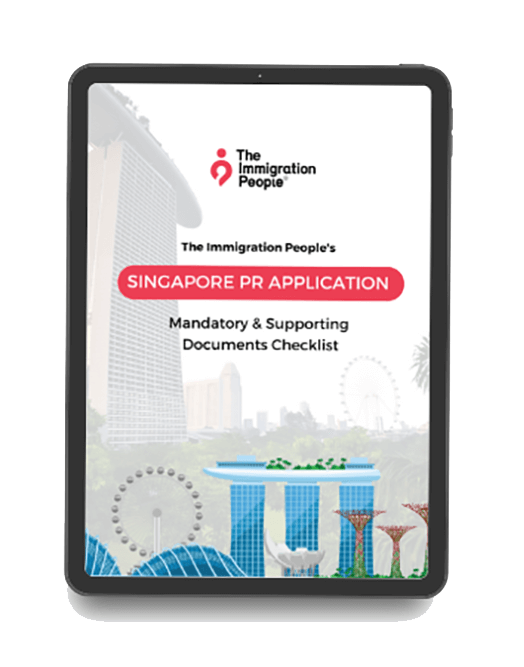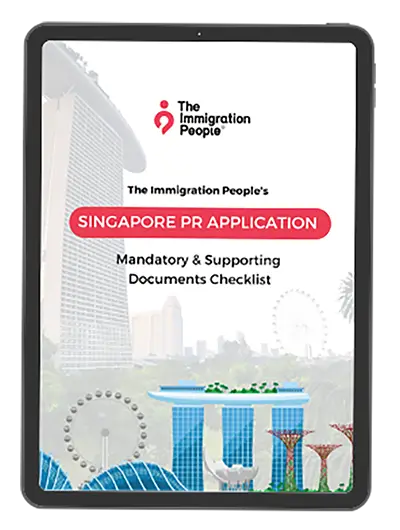自1965年独立以来,新加坡一直是东南亚地区进步和经济增长的典范。其战略位置、世界一流的基础设施、高品质的生活和繁荣的商业环境使其成为全球人才的磁铁。这个城市国家的永久居民(PR)身份尤为令人向往,为外国公民提供了与公民身份相似的诸多好处。然而,最近的趋势表明,新加坡对永久居民申请正变得越来越严格。
增加的限制:明显的趋势
过去几年,永久居民申请的规定明显加强许多。新加坡政府在选择过程中变得更加严格,更加注重申请人对经济和社会的重大贡献能力。这一转变在每年获得永久居民身份的人数下降中可见。
负责移民事务的内政部已经提高了永久居民申请的门槛,强调高水平的技能、专业知识和对新加坡未来的承诺。
增加限制背后的原因
新加坡对永久居民申请态度的变化可以归因于多种因素,包括人口压力、经济考虑、社会凝聚力和国家安全问题。让我们深入探讨这些原因。
人口压力:需求与供给的挑战
空间问题是新加坡的一个重要因素。作为土地面积仅700多平方公里的国家,人口不断增长给该国的物质资源带来了越来越大的压力。这导致房价上涨以及公共交通和医疗保健等基础设施的压力增加。通过调控移民流入,政府旨在有效管理这些压力。
此外,新加坡本地公民的出生率较低。因此,有选择地接纳新的永久居民被视为控制人口增长并维持平衡的人口结构的策略。
经济考虑:追求高技能劳动力
随着全球经济的发展和行业的转型,对高技能人才的需求变得越来越迫切。新加坡一直处于经济进步的前沿,其生存取决于成为全球人才的中心。更严格的永久居民申请规定有助于确保继续吸引那些具备先进技能并对其充满活力的经济格局做出重大贡献的专业人士。
此外,这也是对其他国家在争夺全球人才竞争中的回应。通过设定高标准,新加坡可以吸引和留住能够推动其经济进步的顶级专业人士。
社会凝聚力:确保和谐融入
新加坡是一个文化大熔炉,多元化是其国家身份的重要组成部分。政府始终将社会和谐和不同种族、文化群体之间的融合作为优先事项。随着移民人口的增加,维持这种和谐可能面临挑战。
通过对永久居民申请更加严格选择,政府可以确保那些获得永久居民身份的人尊重并接纳新加坡的多元文化,并对国家的社会结构做出积极贡献。
对外国公民的影响
随着更严格的规定,永久居民申请人发现申请过程更具挑战性。申请人现在必须展示他们在经济和社会上对新加坡的重大贡献能力,这意味着高水平的技能、长期承诺以及融入当地文化。
尽管面临这些挑战,由于其高品质的生活水准、稳定的政治氛围和强大的经济,许多人仍然将新加坡视为具有吸引力的目的地。然而,增加的限制意味着申请人必须准备做出对国家有重大意义的承诺。
谨慎的平衡行为
尽管这些限制对未来申请人来说可能看起来令人生畏,但重要的是要记住,新加坡只是在适应其独特的挑战。这个城市国家正进行着谨慎的平衡行为——旨在吸引外国人才和投资,同时管理人口增长、保持经济稳定和维护社会和谐。
因此,尽管新加坡对永久居民申请变得更加严格,但理解这些变化背后的背景是至关重要的。在2022年,新加坡就批准了13年以来最多PR者的一年:一共批了34,493新的PR!这证明了该国致力于确保所有居民可持续未来的承诺。对于那些能够达到提高标准的人来说,成为这个充满活力国家的永久居民将获得丰厚的回报。
截至我最后了解的时间(2022年1月),新加坡对永久居民申请的要求一直在经常审查和调整。 新加坡的永久居民政策通常考虑了申请人的个人和家庭背景、就业状况、经济稳定性以及社会融入等因素。政府可能根据当前的经济和社会需要来调整申请标准。 通常情况下,新加坡对于有稳定工作、符合职业需求、并在社会上有积极贡献的申请人更为开放。然而,这并不代表政策不会发生变化。要了解最新的政策和要求,请直接向相关机构或官方渠道查询,以确保获取准确和最新的信息。
Frequently Asked Questions On Singapore PR Application For Spouse
Can an LTVP holder apply for Singapore PR?
The foreign spouse of a Singapore PR or citizen who is an LTVP holder can apply for Singapore PR under the sponsored scheme.
A married EP holder and LTVP holder couple can also apply for Singapore PR, with the EP holder being the main applicant.
ICA will evaluate each PR application fairly. Want to know your eligibility chances? Let us calculate for you: https://www.tip.com.sg/pr-application-e-preliminary-profile-analysis.html
What Is the Success Rate for Spouse PR Applications in Singapore?
The success rate for spouse PR applications in Singapore varies based on numerous factors, such as the applicant's qualifications, financial standing, and family ties. The ICA does not release specific success rates, as each application is assessed case by case.
Can My Spouse Work in Singapore While Waiting for The PR Application Outcome?
Your spouse can work in Singapore while waiting for the PR application outcome if they have a valid work pass, such as an Employment Pass or S Pass.
Does My Spouse Need to Be in Singapore During the Application Process?
No, your spouse does not need to be physically present in Singapore throughout the entire application process. However, if the ICA requires, they may need to be in Singapore for certain stages, such as submitting biometrics or attending an interview.
Can My Spouse's Children from A Previous Marriage Also Apply For PR?
Your spouse's children from a previous marriage can apply for PR if they have legal custody over them. You will need to provide custody documents in the PR application.
The ICA will assess their eligibility based on the child's age, relationship with the applicant, and financial support.
Can My Spouse Apply for Citizenship After Obtaining the PR Status?
Yes, after obtaining permanent residency status, your spouse can look forward to applying for Singapore Citizenship.
The selection criteria for a Singapore Citizenship application are much stricter.
They must meet minimum eligibility criteria, which typically include being a PR for at least two years and not losing the PR status due to a case of an expired Re-Entry Permit (REP).
But before considering citizenship status, we encourage keen applicants to ensure that they consistently demonstrate good character, have strong family ties, and are well financially.
Will My Spouse Need to Complete National Service If They Are PR Approved?
From our experience handling PR applications for adult male applicants (typically in their 30s and above) under Sponsored Spouse Scheme, they are generally exempted from the National Service as they are not suitable for full-time NS at that age and did not enjoy any benefits before their PR.
Under the Enlistment Act, all male Singapore Citizens and Permanent Residents, unless exempted*, must serve National Service (NS). NS-liable persons are required to register for NS upon reaching 16 and a half years old and will be scheduled for enlistment at the earliest opportunity upon reaching 18 years old.
Deferment from NS for university studies will not be granted regardless of whether such studies have begun. Those pursuing full-time GCE ‘A’ Level or Polytechnic Diploma studies (or equivalent) may be granted deferment if they meet the deferment conditions stipulated by the Ministry of Defence.
*All male applicants must access www.cmpb.gov.sg for information on NS deferment, the pre-enlistment process and Exit Permit requirements before proceeding with the application.
Can My Spouse Maintain Their Existing Citizenship After Obtaining Singapore PR?
Yes, your spouse can maintain their foreign citizenship after obtaining Singapore PR.
However, if your spouse later decides to apply for and is granted the Singapore citizenship status, they must renounce their original citizenship, as Singapore does not allow dual citizenship.
Does My Spouse Need a Job Offer in Singapore to Apply For PR?
No, a job offer is not a strict requirement for a Singapore permanent residency application under the sponsored scheme.
However, having a job or a job offer in Singapore can strengthen your spouse's PR application, demonstrating their ability to contribute to the local economy and support themselves and their family.


